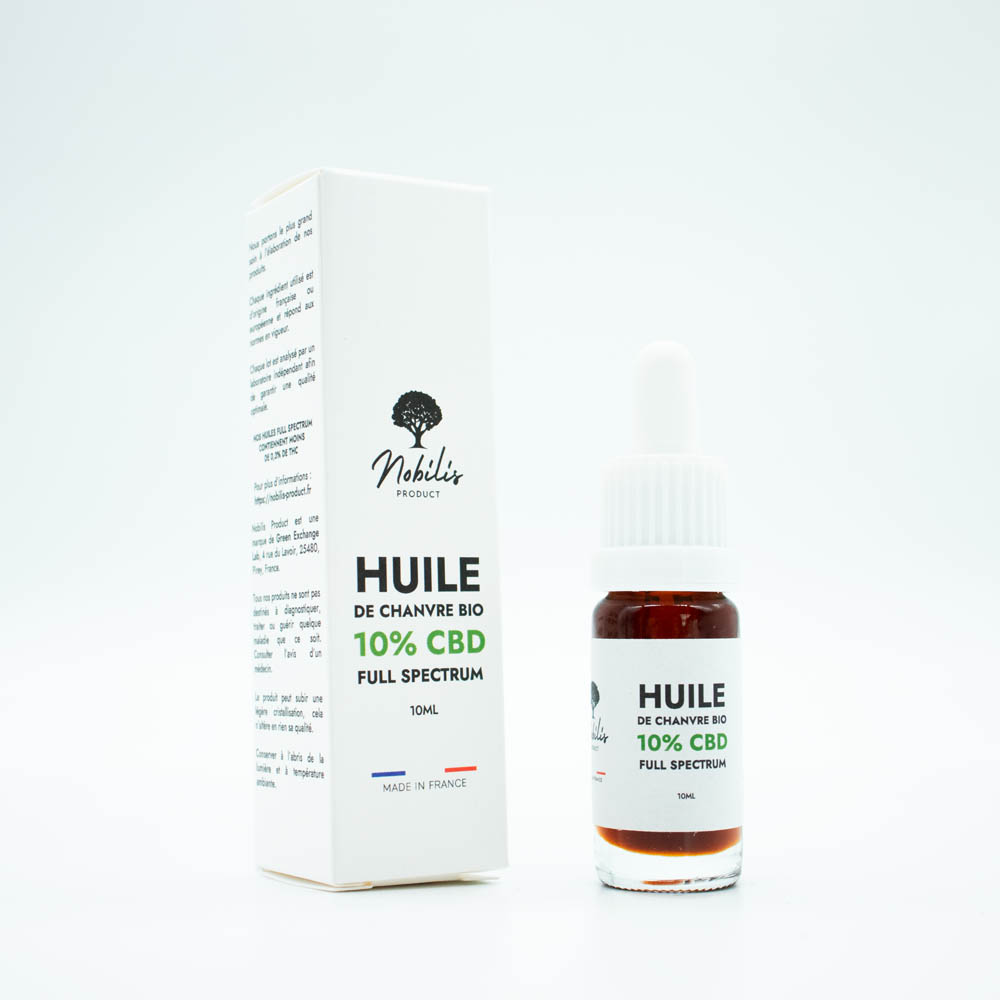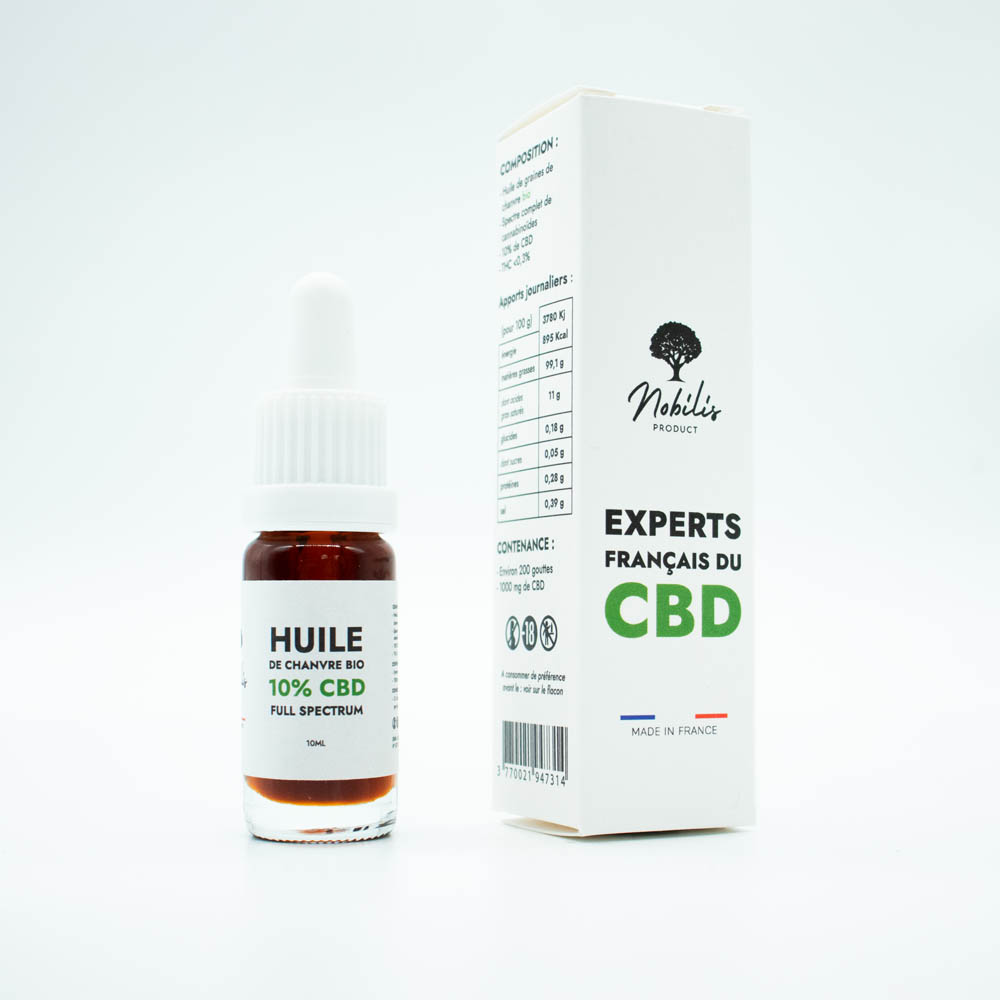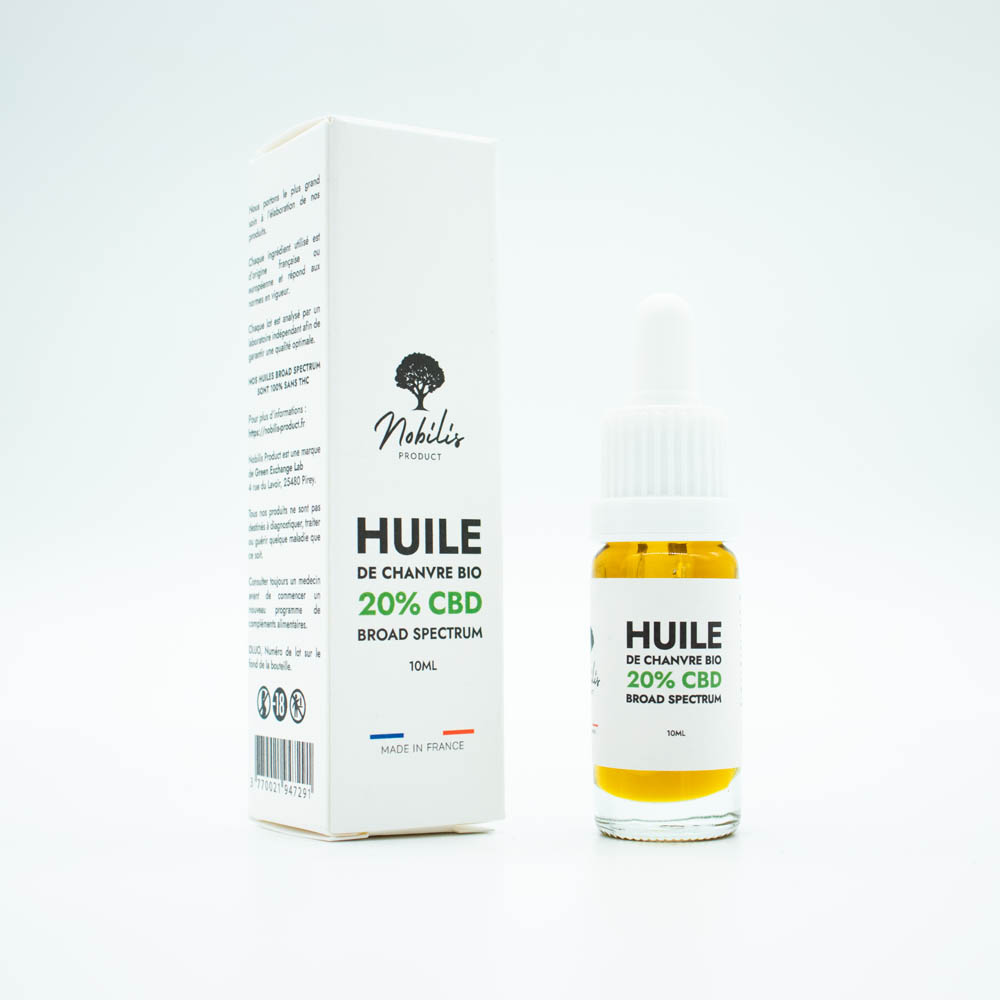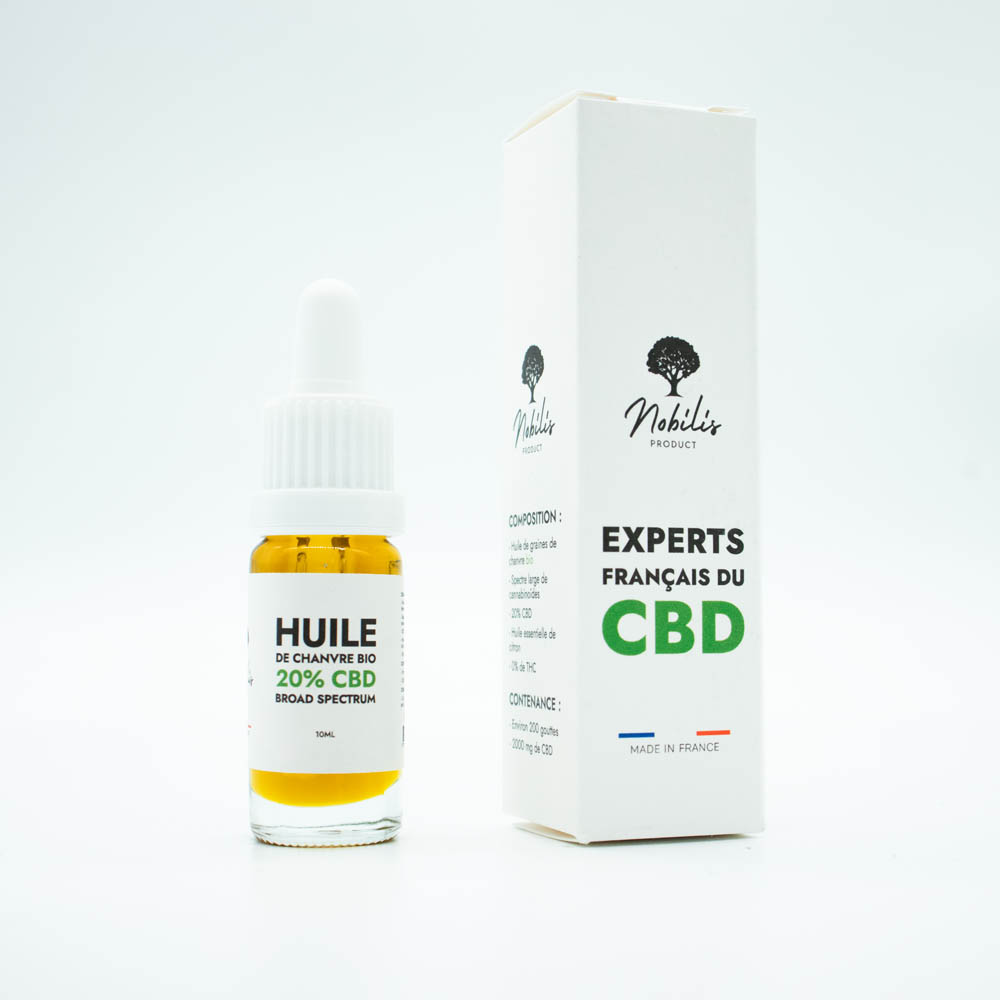Hypertension, or high blood pressure, is a common chronic disease affecting 1 in 3 adults in France. Mainly responsible for serious cardiovascular complications, it is one of the world's leading causes of premature death.
Although there are already a number of effective drugs for lowering blood pressure, the search for a treatment capable of restoring cardiovascular health is at the top of the scientific community's priority list.
Cannabidiol and hemp derivatives are among the most promising candidates. Here's why.
Table of contents
Hypertension: definition, symptoms and treatment
Hypertension is excess pressure in the arteries. In response to this prolonged excessive force, artery walls become thicker and stiffer, affecting blood flow throughout the body, particularly to vital organs.
Hypertension: what is it?
When is blood pressure too high?
In general, normal pressure is considered to be 120/80 mmHg, where "120" represents systolic pressure (the pressure in the arteries when the heart contracts) and "80" diastolic pressure (when the heart is at rest).
Thus, a blood pressure above 120/80 for a prolonged period may be considered hypertension. In practice, however, a pressure of 140/90 is normal.
In reality, the normal blood pressure threshold varies from person to person, depending on age, sex, state of health and even the context in which the blood pressure is taken. Measuring blood pressure in hospital (white coat syndrome), for example, can cause blood pressure to rise occasionally, skewing the diagnosis.
The only way to know if you have hypertension is to measure your blood pressure several times a day for several weeks.
What are the symptoms of high blood pressure?
Sometimes called the "silent killer", hypertension usually has no obvious symptoms. Without regular blood pressure measurements, hypertension can often go undetected for many years.
However, over time, hypertension can cause symptoms such as :
- Frequent and persistent headaches ;
- Vertigo or dizziness, possibly accompanied by nausea;
- Ringing in the ears;
- Nosebleeds;
Heart palpitations, irregular or strong heartbeats; - Blurred vision, flies in front of the eyes
It's important to note that these symptoms are not specific to hypertension and can result from many other medical conditions.
What causes hypertension?
Hypertension has several causes and risk factors, including :
- Heredity: a family history of hypertension plays an important role;
- Age: the risk of hypertension increases with age. This is often due to the increased stiffness of the arteries over time;
- Obesity: excess weight is a major risk factor, since excess adipose tissue can increase resistance to blood flow;
- A sedentary lifestyle: lack of regular physical activity can contribute to hypertension by disrupting metabolism, heart function and blood pressure regulation;
- Bad eating habits: a diet high in salt, saturated fats and sugar, combined with a low intake of fruit, vegetables and fibre, is a risk factor;
- Excessive alcohol consumption;
- Smoking;
- Chronic stress;
- Diabetes.
What about treatments?
Untreated hypertension can lead to a whole host of cardiovascular complications such as stroke or heart attack, and even sexual, kidney or eye problems due to damage to small blood vessels.
Once diagnosed, management of hypertension may involve :
- A change in lifestyle: a varied, low-salt (or salt-free) diet, cessation of alcohol and smoking, regular exercise, etc.
- Medications: diuretics (to reduce excess water in the body), beta-blockers (which act on heart rate) or treatments designed to dilate blood vessels;
- And finally, regular medical check-ups to reduce the risk of cardiovascular disease.
Treatment varies from patient to patient, depending on the severity of symptoms and general state of health. In addition, some drugs may be poorly tolerated or ineffective, making it difficult to establish effective long-term treatment.

What does CBD do for hypertension?
If CBD is attracting the attention of the scientific community as a treatment for hypertension and a whole range of other pathologies, it's first and foremost because we know that the molecules contained in hemp have a very special affinity with the human organism. a very special affinity with the human organism.
They act on the endocannabinoid system, a huge network of receptors whose purpose is to keep the body in a state of equilibrium. Numerous studies on the potential therapeutic properties of cannabinoids (CBD and others) have been carried out since their discovery in the 90s.
With regard to hypertension, it has been shown that CBD can act beneficial effects cardiovascular health in a number of ways [1] :
- It improves vasorelaxant responses (=vessel dilation) responses by acting on artery elasticity [2], thus improving blood circulation and lowering blood pressure;
- It protects against vascular damage caused by a glucose-rich environment, inflammation or the induction of type 2 diabetes. This means it could prevent the risk of hypertension;
- Finally, it is said to reduce vascular hyperpermeability.
Although these studies are encouraging, it is important to note that these observations are valid on an animal model model only. In humans, the vasodilatory properties of CBD have been demonstrated in the specific case of the mesenteric arteries. mesenteric arteries (located in the digestive system). [3]
How to take CBD to fight hypertension?
If you have high blood pressure and want to try CBD, consult your doctor first. There may be a risk of drug interactions.
Once you've got the green light, all you have to do is follow these consumer tips!
Which CBD?
When using CBD for hypertension, we recommend full spectrum CBD oil because it's simple and discreet to use, but also, and above all, because it allows you to take advantage of the synergistic effect of the molecules synthesized by hemp.
This type of oil does, however, contain THC (less than 0.3%), and although this is insufficient to cause any psychotropic effect, you may not want to consume it. In this case, we recommend CBD broad spectrum oil, as it contains all the hemp molecules except THC.
In addition to the oil's composition, its quality is of prime importance. To be sure of its purity, as well as its cannabinoid concentration, opt for a brand like Nobilis-Product, which provides laboratory analysis results for its products.
-
CBD Oil 10% Full Spectrum - Nobilis Product
Rating 4.75 out of 524,90 €Discover our Full Spectrum 10% CBD oil from hemp grown in France, without additives or GMOs. Its richness in cannabinoids and terpenes guarantees an optimal surrounding effect for deep relaxation and natural well-being. Practical 10 ml bottle with pipette for precise dosage.
Our Full Spectrum 10% CBD oil is :
🇫🇷 Manufactured from A to Z (from hemp extraction to bottling) in our French laboratory.
🧪 Made with CBD crude to provide all the cannabinoids, flavonoids and terpenes.
✅ Analyzed by an independent laboratory for each batch to guarantee quality.
-
Broad Spectrum 20% CBD Oil - THC-free
Rating 5.00 out of 529,90 €Opt for our Broad Spectrum 20% CBD oil, a higher concentration for more powerful soothing and relaxing effects. Perfect for those seeking optimal relief from the natural THC-free benefits of CBD.
Our Broad Spectrum 20% CBD oil is :
🇫🇷 Manufactured from A to Z (from hemp extraction to bottling) in our French laboratory.
🧪 Made with CBD distillate to provide all the cannabinoids except THC.
✅ Analyzed by an independent laboratory for each batch to guarantee quality
Dosage
CBD is a capricious molecule which only works when taken in the right proportions. This proportion varies enormously from person to person, depending on a whole host of factors, including the body's affinity for the molecules derived from hemp.
For this reason, CBD dosage is very personal, whether for high blood pressure or for any other purpose. Start with a small dose (3 to 5 drops a day) of a low-dose oil (between 5 and 10%) and gradually increase every 5 to 7 days until you achieve the desired results.
In all cases, we remind you that it is important to seek your doctor's advice.




